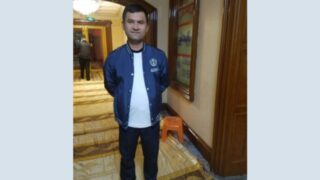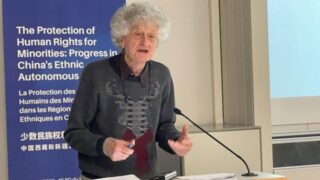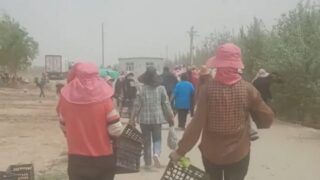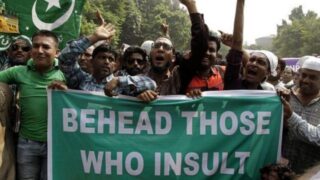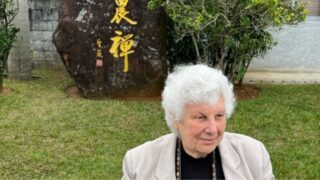The assault on the Unification Church after the Abe assassination is incompatible with several articles of the International Covenant on Civil and Political Rights.
by Massimo Introvigne
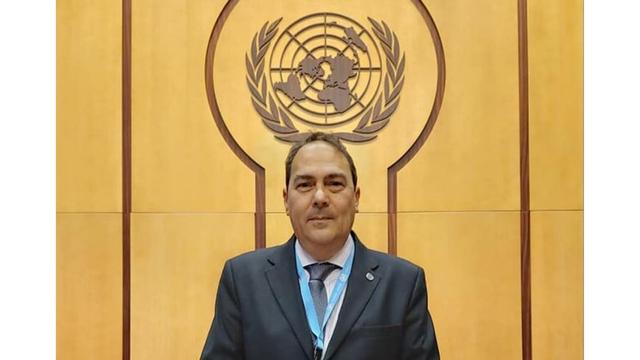

The United Nations Human Rights Committee is the body that monitors the implementation of the International Covenant on Civil and Political Rights (ICCPR) by the states parties. From October 10 to November 4, 2022, it will hold its 136th session in Geneva. Among the countries whose compliance with the ICCPR will be examined in this session will be Japan.
Among the documents submitted by NGOs in consultative status with the ECOSOC, the United Nations Economic and Social Council, which will be discussed in the session, one has been filed by CAP-LC (Coordination des Associations et des Particuliers pour la Liberté de Conscience, Coordination of Associations and Individuals for Freedom of Conscience).
It deals with the violations of the ICCPR in Japan perpetrated against the Unification Church, now known as the Family Federation for World Peace and Unification—although CAP-LC has kept the name “Unification Church” as it is the one mostly used in the media. After the assassination of former Prime Minister Shinzo Abe, both the corporate rights of the Unification Church/Family Federation and the individual rights of its members and those who attend events of related organizations have been violated in Japan.
As discussed in a series of Bitter Winter articles, Abe was killed by a man who had never been a member of the Unification Church. His mother went bankrupt twenty years ago, and he blamed it on her excessive donations to that church. He decided to punish Abe since the former Prime Minister had attended via video an event of an organization connected with the Unification Church, and sent a message to another. The assassin had also planned to kill the leader of the Unification Church, which was clearly the victim in this incident, together with Abe.
However, there is an organized opposition to the Unification Church in Japan, and it managed to persuade the public opinion that the religious group was somewhat responsible for the homicide. The twisted logic was that, had his mother not donated to the Unification Church and gone bankrupt (in 2002), the assassin would not have killed Abe (in 2022).
Within a context of media ready to believe almost every slanderous charge against groups labeled as “cults,” this faulty argument was taken seriously, and serious breaches of the rights guaranteed to the Unification Church and its members under the ICCPR followed.
CAP-LC denounces, first, a violation of Articles 17 and 19.3.a ICCPR, which protect privacy, honor, and reputation. CAP-LC noted that the Unification Church was mostly slandered by attorneys who are members of the “National Network of Lawyers Against Spiritual Sales,” an organization created with the specific purpose of fighting the Unification Church. It includes lawyers who were previously involved in defending deprogrammers, i.e., “faith breakers” who tried to “deconvert” from the Unification Church adult members kidnapped and illegally detained by or on behalf of their parents. Japanese courts have finally agreed with their Western counterparts that deprogramming is illegal, but the lawyers in the Network continue both to slander and to attack the Unification Church through legal actions, accusing it of fraudulently collecting donations through what they call “spiritual sales.”


CAP-LC notes that the story of the so-called “spiritual sales” is told in a defamatory and tendentious way by the Network. When examined more closely, Unification Church practices about donations are not very much different from those of many other religions.
The Network is a private group but, CAP-LC notes, “It is a cause for great concern that lawyers from the Network, which is certainly not an unbiased organization, nor one friendly to religious liberty, are currently participating in official ‘commissions of experts,’ including one convened by the Consumer Affairs Agency and the Ministry of Consumer Affairs, which are suggesting further measures against the Unification Church.”
By aligning itself with a group hostile to religious liberty, the Japanese government clearly violates its ICCPR commitments, argues CAP-LC. “We are deeply concerned, it writes, by the fact that proposals in Japan that the already restrictive 2000 law [on door-to-door sales] should be amended to prohibit soliciting donations as well are seriously considered, including by the above-mentioned official commission, where voices are heard that clearly state that the aim is to prevent donations to the Unification Church.” Obviously, “this would violate a number of ICCPR provisions, including freedom of religion or belief (Article 18), non-discrimination (Article 26), and unreasonable limitations of rights and freedoms of associations to self-organize themselves and obtain the necessary resources for their operations (Article 22). Donations to one particular religion would be treated differently from donations to other religions, based on the idea that this religion practices something called ‘psychic marketing,’ a bizarre label unknown to international scholars of religion that hides the discredited and pseudo-scientific idea of ‘brainwashing.’”
Another reason for concern, CAP-LC continues, is “the inauguration on September 5, 2022, of a government-operated ‘telephone consultation service,’ through which officers will direct those who are ‘experiencing trouble’ with the Unification Church to ‘professional consultation entities including those offering legal help,’ by which they presumably mean anti-Unification-Church lawyers. The fact that this service is offered only with respect to the Unification Church and not to countless other religious (and non-religious) groups whose members may be ‘experiencing trouble’ is a clear case of discrimination prohibited by the ICCPR.”


Article 25 ICCPR guarantees the right of political participation to all citizens irrespective of their gender, ethnicity, or religion. This article is also violated in Japan by proposals that political parties should be prevented from including members of the Unification Church among their electoral volunteers, and politicians should be forbidden from attending events of organizations connected with the same church. CAP-LC adds that “The actions of political parties that, scared by media campaigns, ask their members not to cooperate with the Universal Peace Federation [the Unification-Church-connected organization to which Abe had sent a video and a written message] or the Unification Church, also violate Article 25 ICCPR. In a democratic system, political parties should also respect the ICCPR in their activities and statements.”
Individual Japanese members of the Unification Church, CAP-LC continues, have “experienced violations of their rights to personal security (article 9 ICCPR) and not to be discriminated because of their belief in the workplace and in schools and other educational establishments (article 18.3 ICCPR).” This is a consequence of the hate speech liberally disseminated against them, and the situation is getting every day worse. CAP-LC reports that “In the period from Abe’s assassination to the end of August 2022, the Unification Church in Japan had documented more than 400 hate incidents against its churches, organizations, and individual members. But they continue, and the number is probably higher, since not all local incidents are necessarily reported to the headquarters.”
In addition to attacks against Unification Church’s places of worship, individual believers are also suffering. CAP-LC offers some examples. “On July 18, a female believer in Gunma Prefecture was physically assaulted by her son and reported to the hospital with a broken rib. On July 23 in Aichi, a husband entered the premises of the Unification Church and beat his wife there. On August 16, in Nagano, a believer was badly beaten by her husband because she refused to leave the Unification Church. In several cases, believers were threatened with divorce by spouses who are not members of the Church. In some cases, divorce proceedings have indeed started. A couple in Gunma Prefecture who lived with their son and daughter-in-law was expelled from the latter’s home on July 15, because they refused to leave the Unification Church. Many believers reported their spouses or other relatives had destroyed their Unification Church literature and, in some cases, even their cell phones, trying to prevent them from communicating with the Church.”


The broader context of this persecution is a widespread violation in Japan of Article 18 ICCPR, on freedom of religion or belief, by claiming that “cults” such as the Unification Church are not genuine “religions” and are not entitled to religious liberty. There are proposals that Japan should introduce an anti-cult law similar to the widely criticized 2001 About-Picard law in France, and as France did, tax donations to “cults” as revenue rather than gifts. Those who make such proposals ignore that France consistently lost cases where it tried to tax donations to “cults” at the European Court of Human Rights. It had to give back to three different movements the money of the tax bills they had already paid, plus interests and legal fees.
“All this, CAP-LC concludes, is not allowed by the ICCPR, and Japan should be reminded that the commitments it assumed when it signed the ICCPR cannot be held hostage to the shifting winds of public opinion. While respecting freedom of expression, Japan should also regulate its media, taking into account documents from the U.N. and other international institutions about hate speech and media discrimination against minority religions.”
CAP-LC expressed the “hope that in view of the ongoing suffering of the members of the Unification Church/Family Federation in Japan, these matters may be addressed urgently” by the Human Rights Committee.


